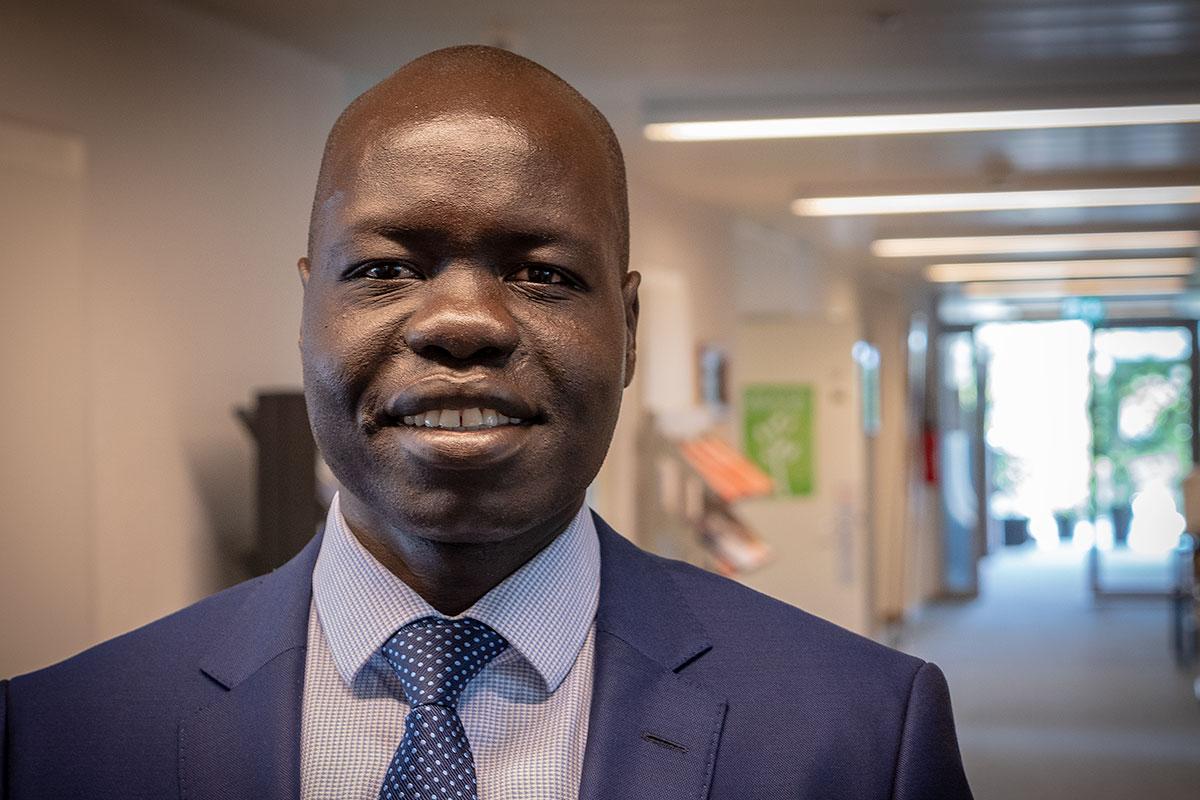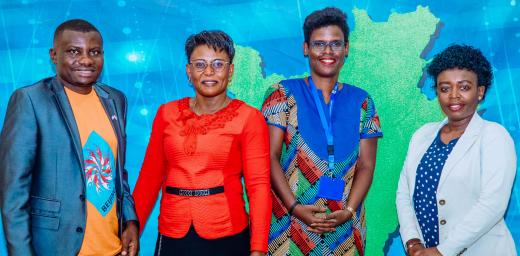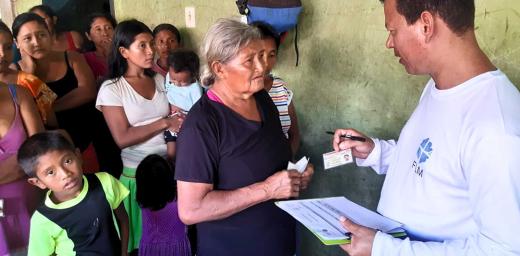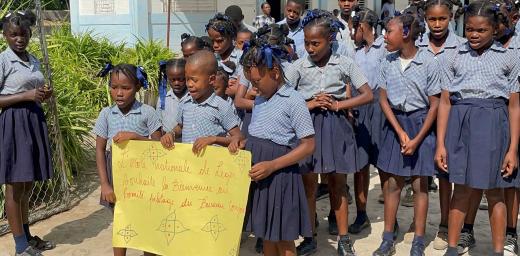“We must speak out against injustice”

Dr Ojot Miru Ojulu has been appointed new Assistant General Secretary for International Affairs and Human Rights
Dr Ojot Miru Ojulu appointed LWF Assistant General Secretary for International Affairs and Human Rights
(LWI) - The Lutheran World Federation has appointed human rights expert Dr Ojot Miru Ojulu to the position of Assistant General Secretary for International Affairs and Human Rights.
LWF General Secretary Rev. Dr Martin Junge welcomed the appointment. “With his eyes constantly fixed on the experiences of people on the ground, Dr Ojulu speaks and acts in the international setting with a detailed knowledge of the available instruments to protect the rights of the people, particularly the most vulnerable. With the appointment of Dr Ojulu, the LWF keeps up with its commitment to be an outward looking communion, one that engages the world and actively promotes justice, peace and reconciliation at all levels.”
Dr Ojulu said he looks forward to building on the success of the LWF, particularly in local to global advocacy, which brings both the voices of local advocates to the global stage and helps implement global policies locally.
Through member churches and country programs, the LWF knows first-hand the many human rights violations that occur throughout the world, he says. “As such, we need to scale up our UN advocacy, strengthen the prophetic voices of our member churches in the public space through hands-on training, and reinforce the human rights-based approach in all our programs and operations.”
Dr Ojulu says the LWF is known for defending and promoting refugee rights, land rights, climate justice, gender justice, and minority and indigenous peoples’ rights, by targeting specific UN human rights mechanisms such the Universal Periodic Review and the Convention on the Elimination of all Forms of Discrimination Against Women. The LWF also plays a critical role at various policy platforms of the UN refugee agency, UNHCR, and the United Nations Framework Convention on Climate Change annual meetings.
Propelled into human rights activism
Dr Ojulu’s career in advocacy began by defending the rights of marginalized minority groups in his home country Ethiopia, where ethnic minorities from peripheral regions were historically marginalized and discriminated against.
“It was not my intention to be a human rights defender but circumstances forced me into this work, especially after what has become known as the December 13, 2003 massacre of the Anywa people in Gambella region and the subsequent large-scale land grabbing and forced displacement of local communities. These tragic events propelled me into human rights activism.”
Dr Ojulu is from the minority Anywa ethnic group.
He holds a PhD degree in peace studies from the University of Bradford, UK. He was president of the East Gambella Bethel Synod of the Ethiopian Evangelical Church Mekane Yesus and was a minority fellow of the UN Office of the High Commissioner for High Rights. Before joining the LWF, he worked for the African Centre for Constructive Resolution of Disputes in Durban, South Africa.
We are compelled to speak out
Dr Ojulu cites the increasing trend of shrinking civil society space, populism, racism and xenophobia as of particular concern to human rights defenders and a global setback for democracy, human rights and peace.
Most of the current challenges are human made, so they can be addressed through human actions and choices. It takes, however, each person to stand up for human rights to bend the arc of the moral universe towards justice.
“When you look at what is going on around the world – the conflicts, the unprecedented number of people forced to flee their homes, the number of men, women and children drowning in the Mediterranean or falling prey to human traffickers, human rights violations against minorities and the exploitation of our environment – we cannot afford to sit back and watch. At least we must speak out.”
He draws hope from the ability of humanity to collectively solve big problems by coming together as nations and people. “Most of the current challenges are human made, so they can be addressed through human actions and choices. It takes, however, each person to stand up for human rights to bend the arc of the moral universe towards justice.”





